Stand Out With an Undergraduate Degree From Webster
Earn Your BFA in Stage Management from the Sargent Conservatory of Theatre Arts
Webster's Sargent Conservatory of Theatre Arts offers a Bachelor of Fine Arts (BFA) degree in Stage Management. Stage managers work on every phase of a production process, from prep to closing night. They facilitate communication among directors, choreographers, writers, designers, actors, office staff, and other collaborators, in addition to running rehearsals and attending meetings. Once installed in the theatre, the stage manager coordinates all production elements and calls the cues of the show for technical rehearsals, previews and performances. After official opening, the stage manager becomes responsible for maintaining the production’s artistic integrity.
A typical stage management major can expect a well-rounded engagement with the theatre process that involves both classwork and production work.
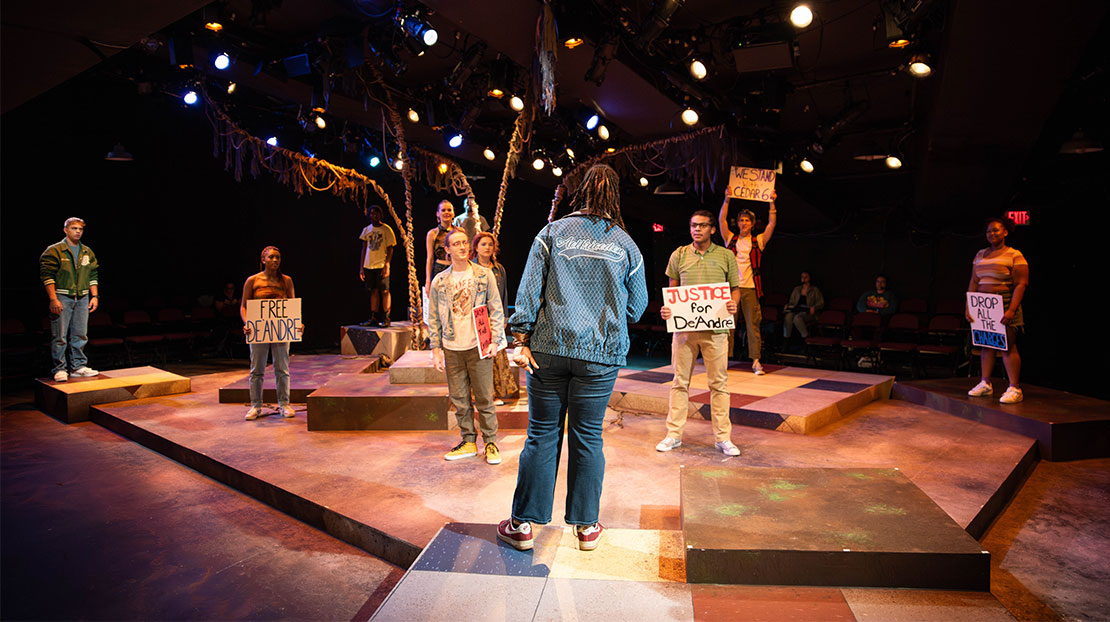
Blood at the Root, 2023
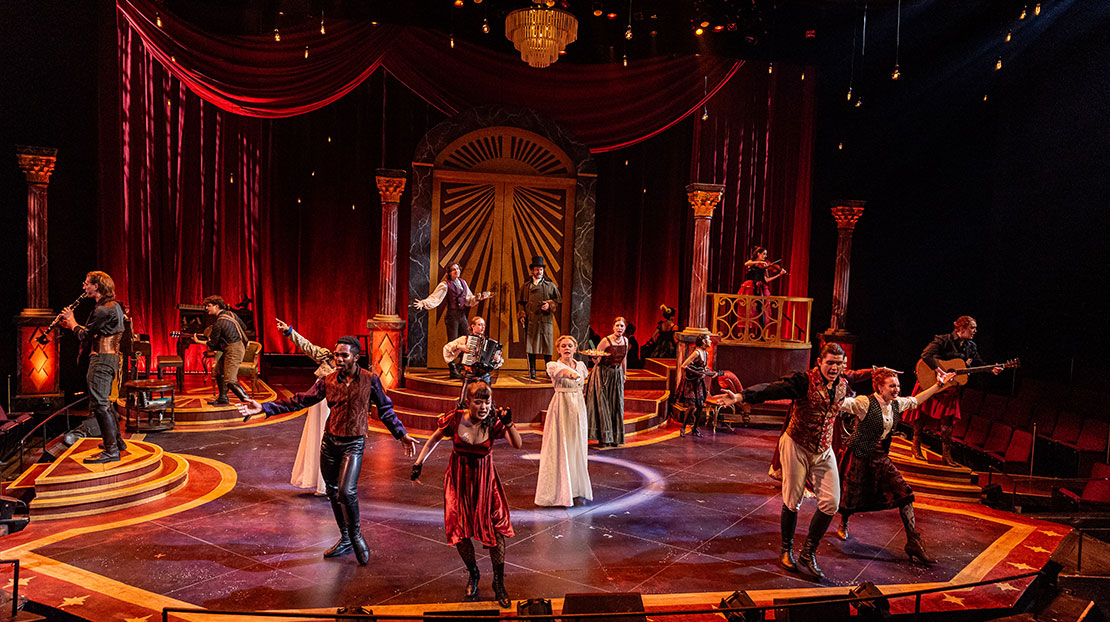
Natasha, Pierre & the Great Comet of 1812, 2024
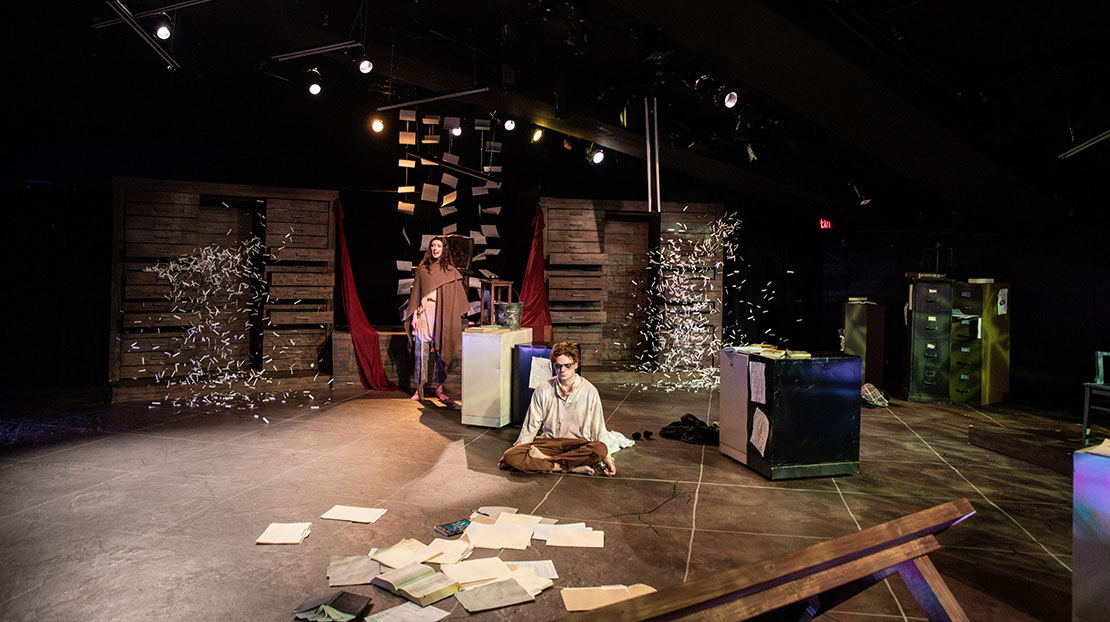
The Last Days of Judas Iscariot, 2024
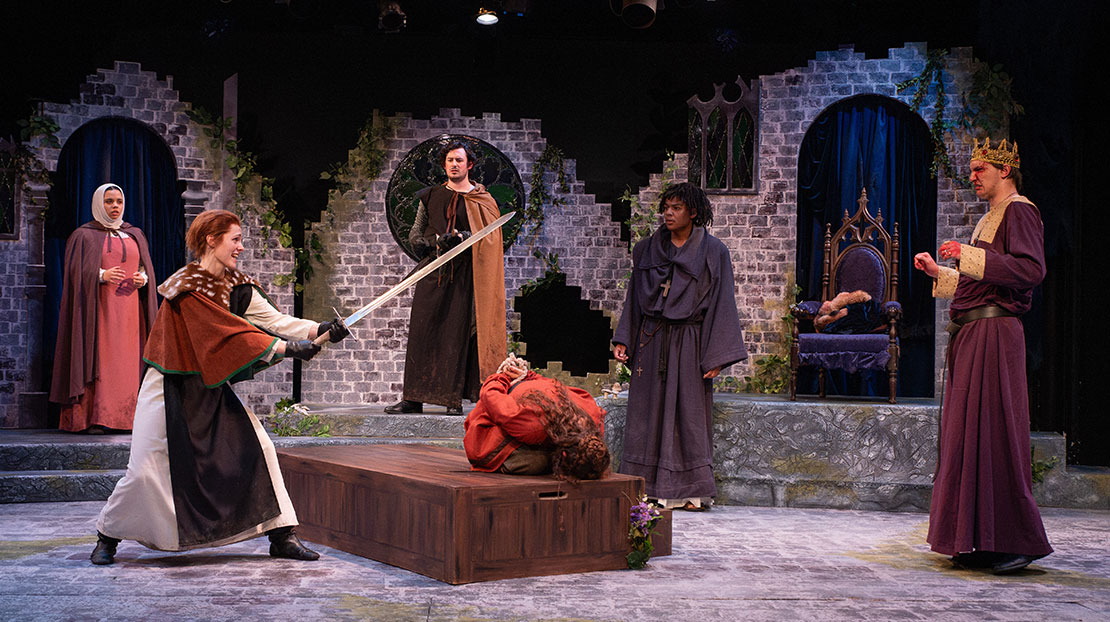
Silence, 2024

The Spitfire Grill, 2023
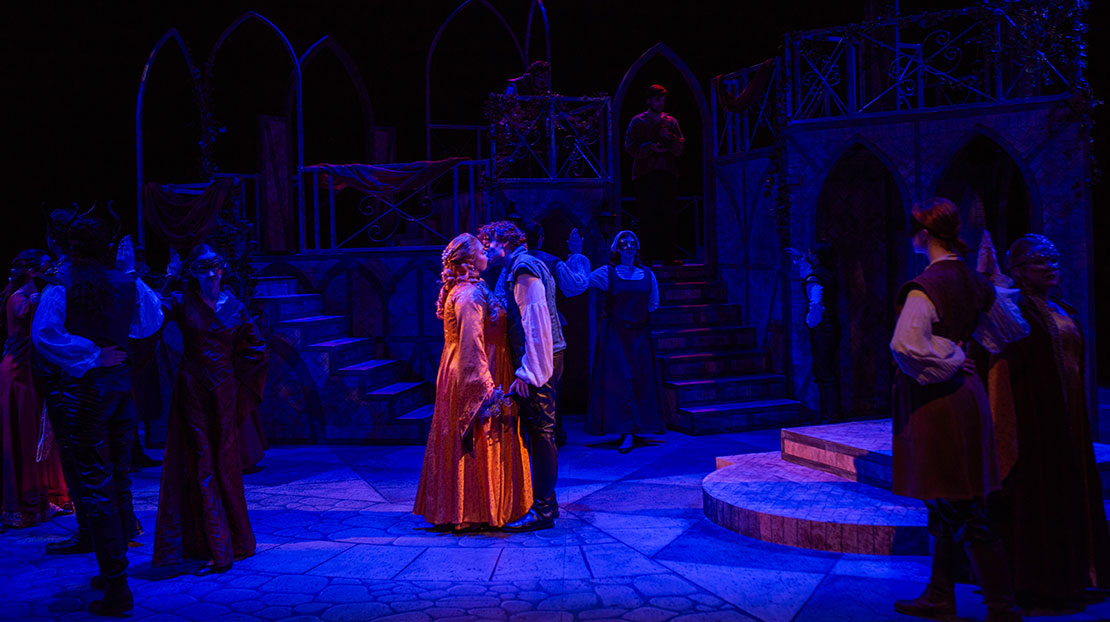
Romeo and Juliet, 2023
Choose Webster for Your Stage Management Degree
Build Real-World Skills for a Career in Stage Management
The Sargent Conservatory trains the next generation of leaders in the theatre and live events sector by blending classroom training with practical work. Students receive instruction and one-on-one mentorship from industry professionals with a vast range of experience, including Broadway, off-Broadway, regional, dance, corporate events and opera. Stage management students also have the opportunity to intern and assist on productions with professional companies in St. Louis and across the country. Through study abroad programs, stage management students can build a rich global experience.
Manage with Professional Partners
The Sargent Conservatory of Theatre Arts partners with six professional companies to give you unparalleled experience in stage management. Gain hands-on experience through internships, assistantships and direct exposure to professional productions. Study in a city that boasts an internationally renowned opera company and orchestra, a vibrant music scene and a number of excellent art museums.
Mentorship from Experienced Faculty
Sargent Conservatory’s faculty are working professionals and dedicated educators committed to nurturing their students’ artistic growth. Learn more about the individual accomplishments of our faculty. Their work includes Broadway, off-Broadway, regional and international credits, as well as projects in a variety of other fields (film, television, voice-over, corporate events). Several faculty members are currently employed by our professional partners. As a result, students in our stage management program consistently have the opportunity to work in professional endeavors.
Webster's Sargent Conservatory Curriculum
The trajectory of courses begins by building a foundation in the technical skills of stage management through Assistant Stage Management production assignments and classes that include:
- Stage management 1
- Stage management seminar
- Fundamentals of design
- Technical production: scenery, lighting, sound, crafts
- Scenography
- Drafting
- Theatre history
- Introduction to drawing
In the second year, students explore the interpersonal/intrapersonal aspects of a stage manager’s work and focus on the relationships forged in a theatrical process. ASM assignments continue to hone critical skills for running rehearsals and performances. Key classes include:
- Stage management 2
- Stage management seminar
- Stage management topics
- Vectorworks
- Rendering
- Visual history
- Fundamentals of musicianship
Whether it’s through a production stage management assignment in the Conservatory season or through a production assistant assignment with one of our professional partners, stage management students will put skills learned in the classroom to practice. Coursework becomes increasingly specialized, while at the same time affording students the chance to explore electives in the design program. Classes might include:
- Stage management 3/4
- Stage management seminar
- Stage management topics
- Lighting design
- Additional design electives
The fourth year aims to provide a smooth transition into professional practice. Production assignments will serve to round out a student’s resume, and preparation for the Senior Portfolio Open House will entail creating a website and fine-tuning interviewing skills. Classes typically involve:
- Stage management 3/4
- Stage management seminar
- Stage management topics
- Sound design
- Professional practice
- Additional design electives
Bachelor of Fine Arts in Stage Management
Find out more about our Stage Management courses, learning outcomes and more.
Theatre Scholarships
Almost every full-time undergraduate student at Webster University receives some sort of financial aid. Webster’s Office of Financial Aid is committed to making a college education affordable.
Additionally, the Sargent Conservatory of Theatre Arts awards annual scholarships designated specifically for theatre majors. In 2023-2024, the department awarded over $225,000 in scholarships to its students. Most of these awards are reserved for our third- and fourth-year students. Every year we allot some scholarships to first-year students. These awards are made in consultation with the recruiting faculty and with the Office of Financial Aid. There is no separate application process. Please contact Andrew Laue, Associate Director of Fine Arts Admissions at lauear@webster.edu, for additional information.

“With the skills I have gained from my professors, classmates and experiences at Webster and beyond, I am equipped to walk into any rehearsal room and ensure that the cast and creative team feel supported throughout the process.”

BFA in Stage Management, ’22

Apply Today for the BFA in Stage Management

Webster's Sargent Conservatory of Theatre Arts is committed to your artistic growth and academic success. The first step is to fill out an application.
Contact Evangeline Rose Whitlock, Assistant Professor of Stage Management
Get Started on Your Bachelor's Degree in Stage Management
Take the next step toward earning your BFA in Stage Management — we are here to help you get started.
Explore
Learn more about our academic programs and our main campus and locations.
Engage
Connect with our admissions counselors and academic advisors.
Apply
Apply to Webster and take the next steps for financial aid and scholarships.
Contact the Admissions Office to Find Out More
If you have more questions about the program, your application or other enrollment-related inquiries, contact our Admissions Office.
Call 314-246-7800 or 800-753-6765 or send an email to admit@webster.edu.



